Product Manager Salary Negotiation: How To Negotiate a Product Manager Job Offer
If you’re currently interviewing for a product manager role or you’ve already received a job offer in product management, it’s time to prepare for your job offer negotiation. As you’ve probably heard before, negotiating a job offer is an important step to take in the recruiting process.
Negotiation is a key skill for any product manager—whether that’s negotiating with an internal team to prioritize your project or negotiating with external parties to keep your product development on track. Negotiating your job offer is your first chance to showcase your professional skills and ensure that you secure competitive compensation.
In this article, we outline how to negotiate a product manager job offer with our job offer negotiation strategy. This strategy has had great success helping product managers throughout the country negotiate better compensation from a variety of both tech and non-tech companies.
Want to Negotiate Your Offer? Get offer-specific guidance from a Salary Negotiation Coach. We help product managers negotiate competitive job offers.
Or leverage our Salary Negotiation Courses and Salary Negotiation Templates.
 Job Offer Negotiation Course
Job Offer Negotiation Course
- Get our job offer negotiation strategies, templates, scripts, and guidance.
- Access our step-by-step lessons, compensation research guides, and tools.
- Access Now
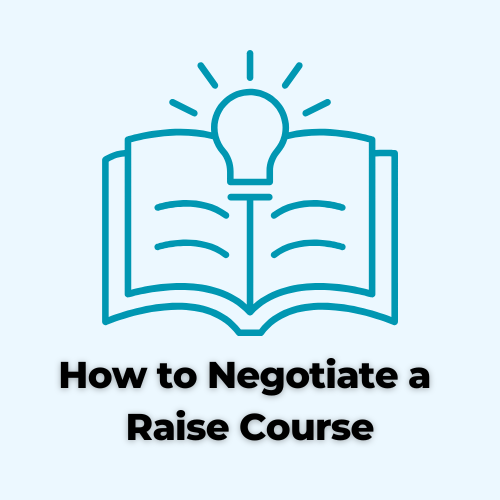 Raise Negotiation Course
Raise Negotiation Course
- Get our raise negotiation strategies, templates, scripts, and guidance.
- Access our step-by-step lessons, compensation research guides, and tools.
- Access Now
Understanding the Compensation Components of a Product Manager Job Offer
Whether you’re an associate product manager, senior product manager, or principal product manager, you possess a highly sought-after skillset that makes product management salaries competitive. However, it's still important to understand what is included in your new compensation so that you can successfully negotiate it.
When you receive a job offer in product management, it will include different compensation components that make up your total yearly compensation. Understanding each of these components before you start negotiating can increase your chances of increasing your entire compensation package.
The base salary is the number most people focus on when they receive a job offer, but it’s typically only one part of the overall compensation package in a product management role. In many industries—mainly the tech industry—product managers will also receive an annual performance bonus, initial equity package, sign-on bonus, and other benefits like retirement benefits and remote work flexibility. It’s important to consider all these compensation components carefully when evaluating your product manager job offer.
For example, here is what the total compensation of a Google Senior Product Manager (L6) may look like in their initial offer:
Google Product Manager Salary
Now, let’s take a closer look at these different compensation components.
Product Manager Base Salary
The first component of your job offer will be the product manager base salary, which is the fixed guaranteed pay that you receive in exchange for the work you do. Your base salary is not tied to your performance.
Each level of product management will have a base pay range with a set minimum and maximum amount. For example, a senior product manager salary package will have a different base salary than a principal product manager salary package at the same company. While product management roles are competitive, their initial offers rarely come in at the top of their pay bands. This is why you need to determine what the pay range is so that you can successfully negotiate at the top end of that band.
Product Manager Performance Bonus
Most product manager job offers include an annual performance bonus, which is typically a percentage of the base salary and will be based on both company and personal performance. This means your bonus may be more or less depending on the targets you or the company hits. While it’s possible to exceed most target percentages if you and the company outperform your goals, it’s best to assume the average bonus payout when evaluating and negotiating this component.
A performance bonus can make a huge difference in a product manager's total yearly compensation. However, for most companies, we have found that these bonuses are generally non-negotiable and there’s often a set target percentage depending on role type and level. That said, since the bonus is usually a percentage of your base salary, your bonus could increase your total compensation if you negotiate a higher base salary.
Product Manager Equity Packages
Equity is a key component of many product manager salaries, and it’s highly sought after in product management roles. As a product manager, you may receive an initial equity grant in your job offer, which can be offered either as restricted stock (restricted stock units or restricted stock awards) or stock options. This grant will include a bundle of shares or options that vest over a defined timeframe (i.e., four years), called a vesting schedule. Equity packages are most common in job offers from tech companies, but many startups and non-tech public companies have started to offer them as well to employees.
Equity can be an extremely valuable form of product management compensation, but it does fluctuate based on the market value of the company. For example, say you secure a job offer with Meta—your Meta product manager salary will benefit if Meta’s share value goes up, but you’ll take a loss if Meta’s share value goes down. However, you usually cannot control those fluctuations and the main risk with equity is that you have to forgo it if you leave the company before the equity vests.
We’ve found that equity is usually negotiable. So while it’s a good idea to always push for more equity when negotiating, it’s also important to focus on negotiating all compensation components and not just the equity. That way you reach the top end of the total compensation pay band.
Product Manager Sign-on Bonus
Product managers will receive a sign-on bonus in most job offers—it just might take some negotiating first. A sign-on bonus is a one-time bonus that you would receive as an incentive to join the company and cover any lost bonuses or unvested equity that you may give up at your current company. Not all companies provide a product manager signing bonus in the initial offer, so it’s important to negotiate for this component. We’ve had countless successes securing large product manager sign-on bonuses; it’s a component that should not be missed in any job offer.
Even if you’re not walking away from money at your current company, you can—and should—still negotiate a sign-on bonus in a product management role. Most signing bonuses are paid in one lump sum within the first 30 days of employment, but you’ll usually need to pay back the bonus if you depart the company within the first year (or other designated timeframe). Some companies approach sign-on bonuses differently: Compass and Amazon are known to offer sign-on bonuses in year one and year two—which can be paid out monthly instead of in one lump sum payment.
Product Manager Equity Refresher
You may receive an equity refresher (more stock) in a product management role, but you’ll find that most recruiters withhold the stock refresher details. This is common for equity refreshers at Apple and other industries that offer this annual perk. During the salary negotiation, you should ask the hiring team to provide more details about the amount and timeline of the stock refresher. Many hiring teams shy away from sharing these specific details, making it difficult to compare across product management offers—which is why we don’t include this component in our total compensation calculation.
Benefits and Perks for Product Managers
Benefits can vary widely for Product Managers across different companies, whether that be health insurance, 401k retirement plans, relocation assistance, fitness stipends, or even free food. While they depend on the company, these benefits and perks for product managers are not usually negotiable. However, it can sometimes be possible get those changes approved via a under-the-table agreement with your future hiring manager (i.e., your manager will let you take more vacation).
That being said, a top attraction of most technical product manager salary roles is the ability to work remotely, which has become a huge perk that should be brought up during the interview process.
Five Key Steps to Negotiate a Product Manager Job Offer
It's important to understand how to negotiate your product manager salary so you can increase your chances of achieving higher compensation.
Based on our experience helping hundreds of job seekers successfully negotiate their job offers, we’ve found that it’s best to avoid starting the product manager salary negotiation until you have an offer in hand. Having an offer will give you more leverage to negotiate and will ensure you avoid any missteps like disclosing your salary expectations to the recruiter.
We’ve laid out our proven steps to negotiate a product manager job offer below. While these are the key steps to a product manager salary negotiation, we strongly recommend product managers work with a Salary Negotiation Coach to guarantee success and get all of our strategies.
1) Understand the Components of Your Product Manager Job Offer
We’ve already covered the common components found in a product manager job offer so this first step should be easy. Remember, review the job offer for a base salary, performance bonus, initial equity grant, sign-on bonus, and any benefits and perks. Understanding your total compensation is an essential step before negotiating any job offer.
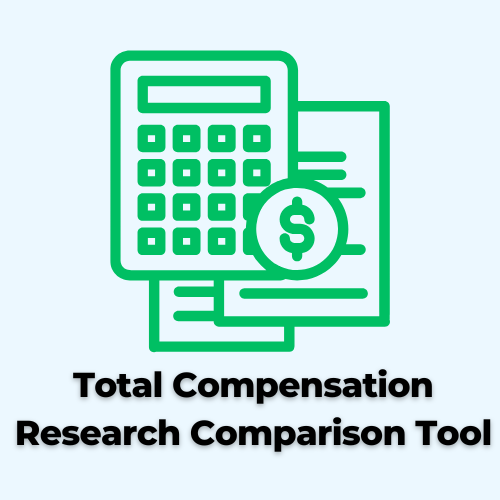
- Understand Total Compensation – Use our tool to break down and calculate the compensation in your job offer.
- Research & Compare Offers – Organize your compensation research and determine the right counter amount.
- Get Here
2) Complete Due Diligence on Your Product Manager Job Offer by Asking the Right Questions
Product managers are tasked with knowing everything about their product so why not start with that skill now. Asking strategic questions will show you’re interested in the role and will help you establish an effective counteroffer. Taking this step ensures you get clarification on items that the recruiter may have been vague about (i.e., What is the expected equity refresher each year for this role?) and allows you to collect data point to use in your counteroffer.
You may think you understand all aspects of the offer package but asking for more information will strengthen your counteroffer and can lead to quick wins. Make sure you start this phase of the negotiation right after you receive your initial offer. If needed, you can use our list of Strategic Questions to Build Negotiation Leverage.
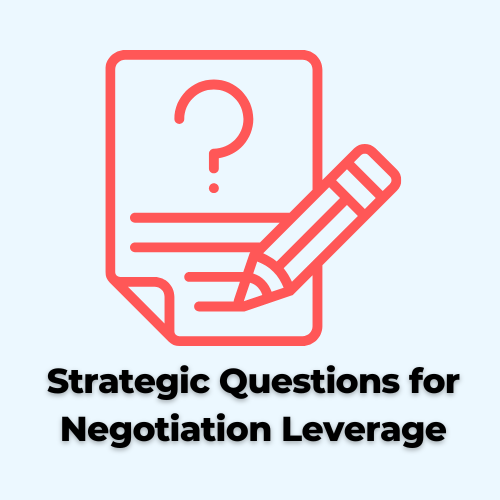
- Build Negotiation Leverage – Ask the right questions to strengthen your negotiation before sending a counter.
- Email & Phone Scripts – Get our list of questions to ask and what to say if the recruiter wants to chat through them.
- Get Here
3) Research to Identify What Product Manager Compensation Should Look Like
The compensation for product managers will differ across companies, so it’s important to conduct pay research to understand the product manager pay range, the strength of your job offer, and how much you should ask for. You’ll need to research the specific role type, level, company (i.e., is it a technical product manager salary or non-technical product manager salary, or entry level product manager salary, and is it a Microsoft product manager salary or an Apple product manager salary) and where it’s located, whether that be in-person, hybrid, or remote.
Many online resources exist to help you determine the appropriate product management salary, such as Payscale or Built In, but be sure to compare pay data across multiple resources. Compensation ranges on these types of sites are publicly reported by current or past employees, so the pay may differ from what they may offer new employees (i.e., the current employees’ total compensation is higher because the stock price appreciated and their equity is more valuable), and it might be inaccurate if the employee didn’t correctly upload all compensation components.
At the end of the day, you’ll be expected to manage the same tasks as anyone hired for that position; so you’ll want to push for at least the mid- to top-end of the total compensation range for your product management role level—regardless of your experience or background. You can use our Total Compensation Research Comparison Tool to help you with your compensation research and identify these pay bands.

- Understand Total Compensation – Use our tool to break down and calculate the compensation in your job offer.
- Research & Compare Offers – Organize your compensation research and determine the right counter amount.
- Get Here
4) Send a Product Manager Counteroffer to the Recruiter
This step is where the product manager salary negotiation really takes off! Once you’ve completed prepping for the product management salary negotiation (the first three steps), you’re ready to send a product manager counteroffer.
In this step, you’ll present your ask to the recruiter by referencing your data on the pay range and how the benefits differ from other companies and/or your current role. This can be done over the phone, but we strongly recommend doing it via email so you can draft exactly what you want to say (helping minimize the risk of going off-topic) and so you have everything in writing. Presenting your product management counteroffer through email also gives the recruiter something they can forward on and use internally to get you a better offer.
Just remember to always approach this step professionally—this is your first chance to showcase that you’re a pleasure to work with. To ensure proper communication, use our Counteroffer Drafts for examples if you need help formulating a strategic counteroffer.

- Proven Counteroffer Templates – Built from hundreds of successful job offer negotiations.
- Negotiate with Confidence – Remove the guesswork with our professionally crafted counteroffers.
- Get Here
5) Handle Any Objections and Know You Achieved the Best Product Manager Salary
Sometimes it only takes one product manager counteroffer and the hiring team will respond with an updated offer package. Usually, though, you’ll receive reasons from the hiring team for why they can’t make any increases to the product manager salary.
To handle any objections from the hiring team, respond nicely by stating you understand their constraints, but you would appreciate it if they could take your thoughts back to their team for one last look at the offer. Do this even if they insist their team will just say no and follow our Objection Handling Scripts if needed.
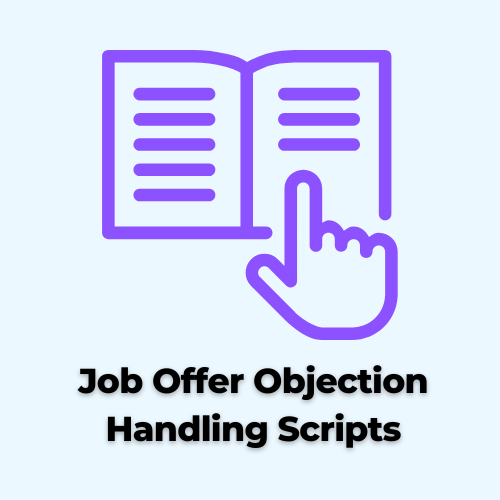
- Overcome Recruiter Pushback – Proven scripts to handle pushback and keep your salary negotiation on track.
- Communicate Effectively – Use expert responses to get recruiters to advocate for you with the compensation team.
- Get Here
You may have to handle a few objections, but once they agree to take it back to their team, they should come back with a better offer.
Once you receive a negotiated product management job offer that fits your requirements and matches the product manager pay bands you researched, you should be ready to send an offer acceptance letter and start planning the transition. Congratulations on your successful product manager offer negotiation!
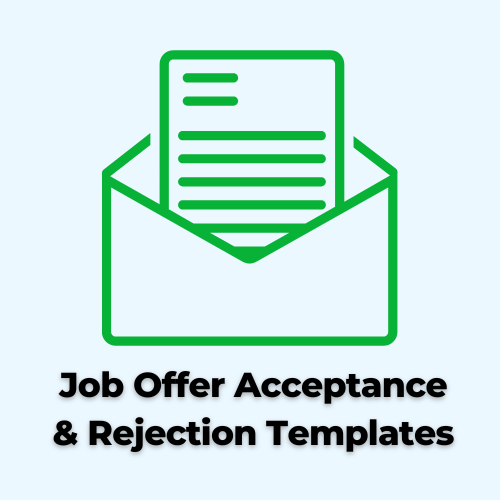
- Accept or Decline – Expert crafted job offer acceptance email and rejection email templates to share your decision.
- Professional & Genuine Tone – These help you communicate in a professional manner regardless of what you decide.
- Get Here
Mistakes to Avoid During Your Product Manager Salary Negotiation
Hiring teams are trained to get the best deal for their company. This doesn’t mean they’re going to lowball you, but they have a few tricks to get you to accept without negotiating. Below, we share the key mistakes to avoid during a product manager salary negotiation.
Avoid Sharing Salary Expectations Before You Get a Job Offer in Product Management
In our experience, sharing your salary expectations can work against you in receiving a fair job offer in product management so try to avoid sharing them with responses like this.

- Salary Expectation Responses – Scripts to overcome recruiter salary expectation discussions and pre offer calls.
- Avoid Lowballing Yourself – These call scripts and email templates will help you get a competitive offer.
- Get Here
If you share a lower compensation than what they could offer, they are more likely to offer you that low compensation. If you share a number higher than what they could offer, there is a chance that they could become disinterested and decide to go with a different candidate. Remember that recruiters are working for the company, not you. Lastly, it doesn’t make sense to discuss compensation before you learn more about the specific role, its benefits and compensation, and whether those aspects feel like a good fit for you. After all, you’re also interviewing them to see if this role and company are a good fit for you.
Don't Be Afraid to Negotiate as a Product Manager
Many people are afraid to negotiate out of fear of offending the recruiting team or losing the job offer— especially since the product manager interview process can take a lot of time. But we’ve helped facilitate hundreds of successful salary negotiations, and we’ve never seen a company pull a product manager job offer because they tried to negotiate. It's usually expected, regardless of the role level—whether it’s an IC (e.g., Amazon product manager salary), manager product management salary, director product management salary, or a vice president product management salary—you should negotiate. Don’t let salary negotiation myths talk you out of advocating for higher compensation.
Be Realistic by Doing Your Research
While product management roles pay well, it’s important to be realistic about what compensation is possible for the specific role you received. Use your product management skillset to research your total compensation and what the company pays for the role so you know what to expect and ensure you only push for compensation that the company can realistically provide. For example, the entry level product manager salary would be different at a start-up or non-tech company compared to what a product manager may see during a Amazon salary negotiation or Microsoft salary negotiation.
PM Salary Negotiation Coaching & Tools
Increasing your product manager salary requires a deep understanding of the company’s compensation philosophy and the right salary negotiation strategy. Our expert Salary Negotiation Coaching will help you navigate the negotiation process and secure the top end of the product manager pay band.
Or leverage our Salary Negotiation Courses and Salary Negotiation Scripts.
 Job Offer Negotiation Course
Job Offer Negotiation Course
- Get our job offer negotiation strategies, templates, scripts, and guidance.
- Access our step-by-step lessons, compensation research guides, and tools.
- Access Now
 Raise Negotiation Course
Raise Negotiation Course
- Get our raise negotiation strategies, templates, scripts, and guidance.
- Access our step-by-step lessons, compensation research guides, and tools.
- Access Now



